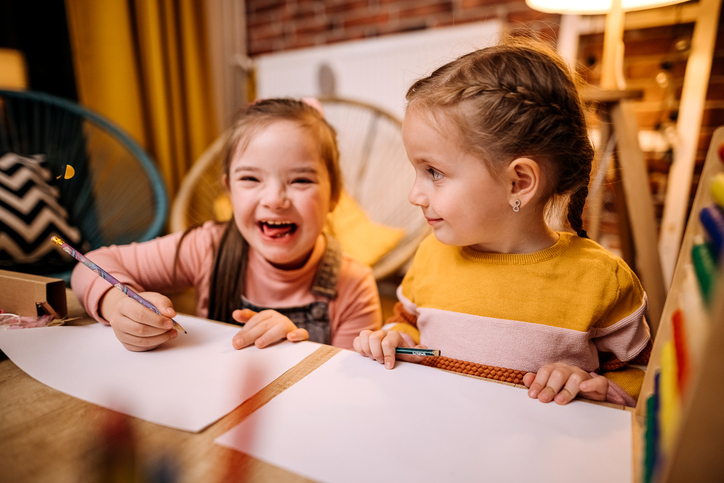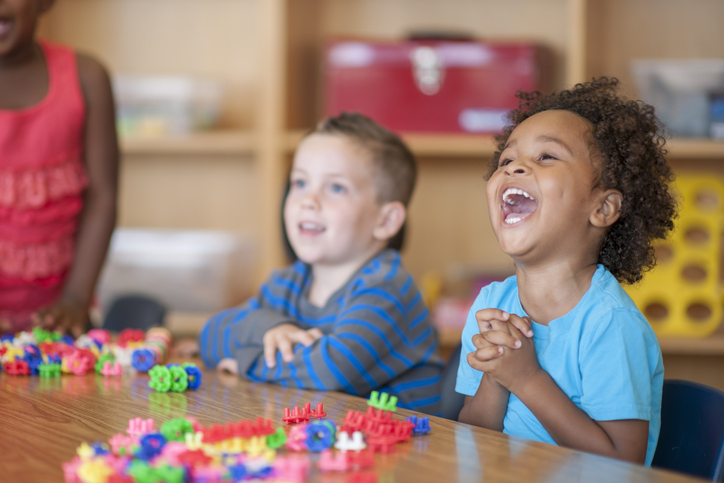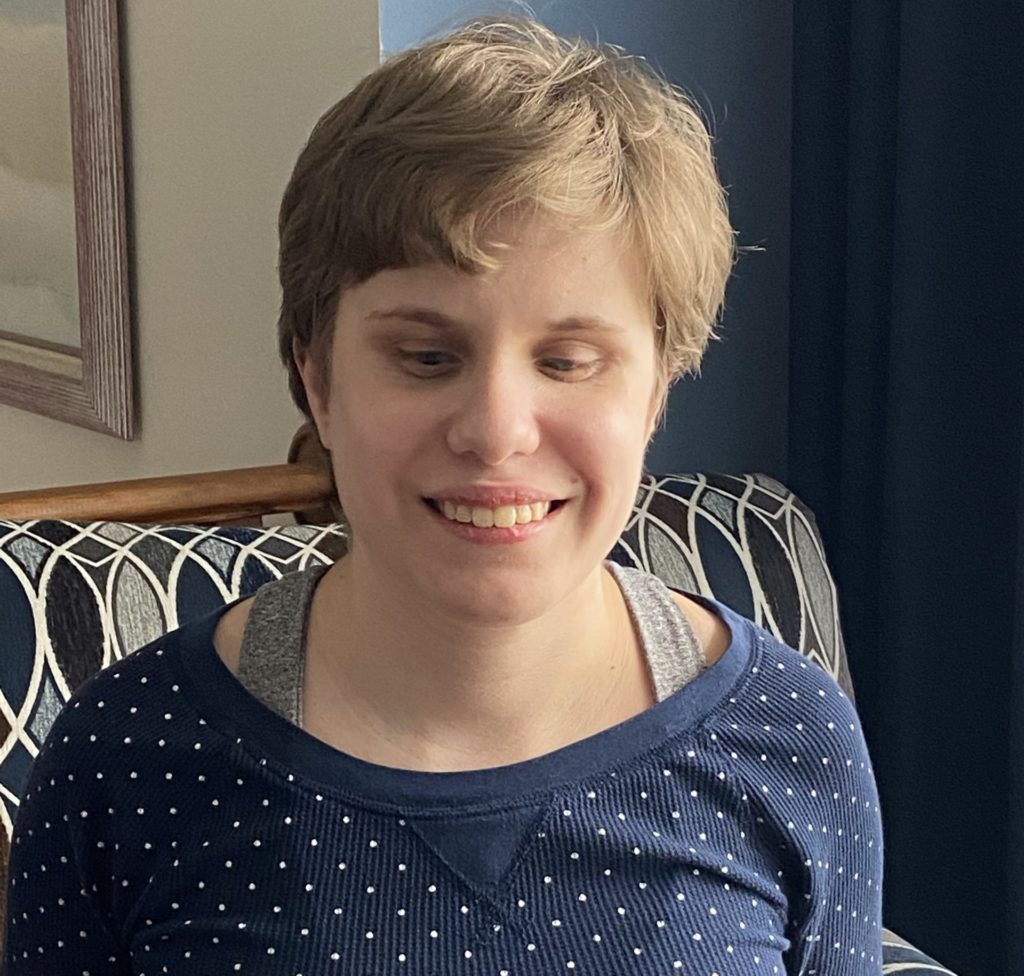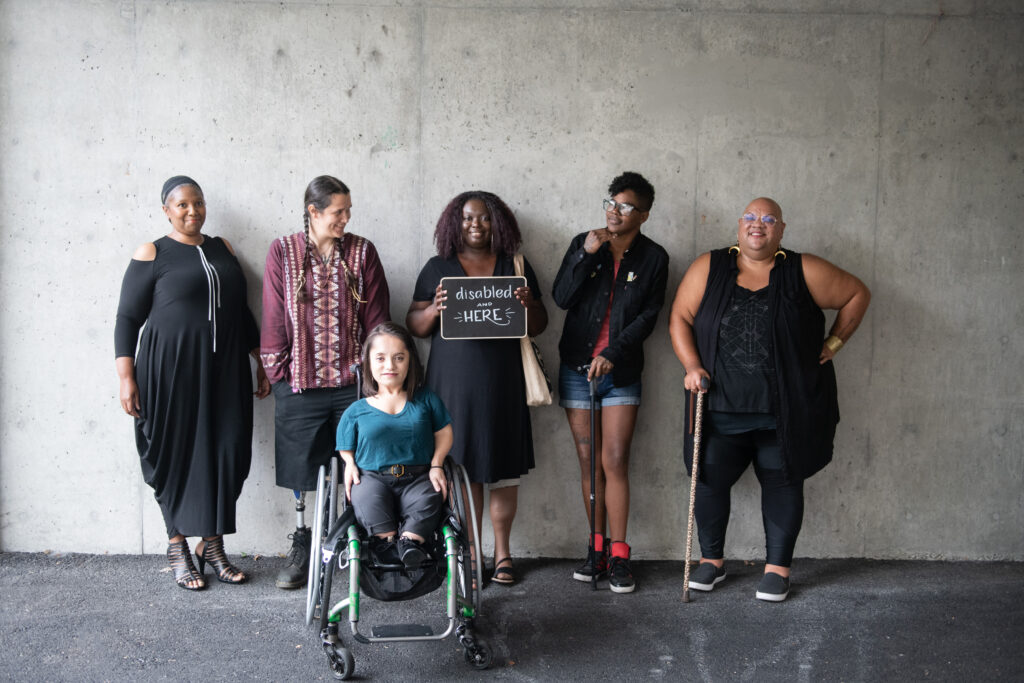
Q&A with "Glen Campbell...I'll Be Me" Director James Keach
In Jackie Orihill's conversation with James Keach before the Chicago premiere of Glen Campbell...I'll Be Me in November 2014, James Keach shares what this documentary means to him and to all caregivers. Also read a candid Q&A with Glen Campbell's wife and daughter here on easterseals.com too.

(left to right) Jim Williams, Ashley, Kim and Shannon Campbell and James Keach
Q: When did you first meet Glen? How did you meet him?
James: I met Glen Campbell in June of 2011. He was introduced to me by Julian Raymond, who produced Glen’s last two albums, “Meet Glen Campbell” and “Ghosts on a Canvas.” Julian was producing my son, Johnny Keach, who was 14 at the time. And he would come over to the editing room and say “You’ve got to meet Glen. He’s going to go out on tour and we want you to do a movie about him.” He knew that I had a lot of camera equipment, because I had been out on tour with Cheap Trick. My son opened for Cheap Trick, so he said “Glen’s going to go out and do five weeks. Maybe you could just go out and [film] a few of the shows and just do it as a favor to me.”
My partner Trevor Albert and I talked about it and said “We’ll see if we have time and maybe we’ll do it.” And he said, “No, you don’t understand. Glen’s got Alzheimer’s and this is the last thing he’s going to ever do.” So Trevor and I thought, “Alzheimer’s, that’s pretty daunting.” I asked, “Do you want us to make a regular film or do you want us to just do a concert film?” And he said, “No, I want you to make a regular film.” And I said, “How do you do something entertaining about Alzheimer’s?”
Trevor and I went and watched everything we could and we came back and had the same conclusion. There’s nothing entertaining about Alzheimer’s. Then we met Glen. And Glen was very entertaining. He wanted us to make this movie, and Kim (Glen's wife) said, “We’ve seen your work.” He was going to do the tour, but he said, “I’d like you to film it.” They only booked five weeks of shows, and after I met him I said, “What the heck.”
Q: What was your impression of Glen when you first met him?
James: Sweet. Funny. He immediately came in [to my living room], and my son Johnny came walking across the room. Johnny had a guitar in his hand and Glen said, “Hey, I play guitar. You want me to show you something?” And Johnny says, “Yeah, I know you play guitar. Sure, show me something.” And Glen picked up the guitar and just went all over the neck of the guitar. He just killed it. And then Glen said, “That’s what Uncle Boo taught me. If you practice that, you’ll be good. You’ll be really good.”
Johnny went back into his bedroom, and I kept visiting with Glen and Kim. Kim said “Glen wants you to make this movie, James.” [Glen] showed such warmth, and he was cracking jokes. Kim said, “You’ve got Alzheimer’s,” and Glen said, “No I don’t. I have part-timers.” [James laughs] So immediately I knew that he was ok with talking about it, and [Kim] was so loving towards him. You can tell that even during his repetition, she was never critical with him. You can tell in the movie that she’s this incredibly caring, loving, spiritual, faith-based woman, and so is he.

Glen Campbell documentary poster
Q: What would you like people to take away from this movie?
James: First I know what Glen would want them to take away from the movie. That it’s better to laugh than to cry. It’s better to be honest in your life, to live in the moment, and never give up. He was told to hang up his guitar, and he said, “I ain’t done yet.” People were telling him, “You’ve got Alzheimer’s, Glen,” and he said, “Yeah, so I’ve got Alzheimers.” [James shrugs.] You’ve got to live with it.
Life deals lots of things, but the coolest thing is that when the family was given Glen's diagnosis, they too chose to take his path, which was to live and not to wither away. And they wanted him to do what he wanted to do for as long as he could do it, which was to play music and to celebrate his gifts and entertain people. That’s where he’s most comfortable.
Q: Once people see the film, how do you hope that viewers can support you and the film and caregivers in general?
James: I think the most important thing is to see the film so that caregivers feel seen and appreciated. The audience become caregivers too, which is what’s so cool. It happens when [Glen] is most vulnerable—he's standing on the stage, he’s forgetting the lines, he can’t read the teleprompter, or he doesn’t know who his children are. And yet, he can play these songs and his kids are loving him. The audience is standing up for him and giving him standing ovations. So instead of correcting him and him feeling ashamed, he’s feeling loved. And so what it’s doing is empowering him to want to do more. It’s empowering the audience that they’re seeing something really special and they’re participating, and it’s about love. It’s a love story between everybody.
So what I hope is that the people who have Alzheimer’s feel seen. [I hope that] the people that are taking care of people with Alzheimer's feel honored—they’re doing something that’s noble. And I hope that the people who are a part of the community want to reach out and help those people that are suffering from it. And the bigger picture is that there’s a big conversation where they try to get the National Institutes of Health to actually do something to try to slow this thing down. Not necessarily find a cure, but just to slow it down so that people don’t have to deal with the tsunami of sadness.
Q: Have you had any personal experience with Alzheimer’s?
James: My aunt, my mom’s sister, has Alzheimer’s. She’s 104, and she’s had it since she was 80.
Q: Was that the driving force behind wanting to do the movie or just coincidental?
James: No, it was just coincidental. When we were screening a movie in Nashville for 4,500 people, I looked out at this sea of people and said, “I’m just curious. How many people in this room have somebody that they were a caregiver for or have had Alzheimer’s?” And pretty much everyone in that entire room stood up. Then I said, “How many of you have told other people that you’re dealing with this?” Not a lot of people raised their hand, because there’s a stigma connected to it, and what happens is not pretty, but I think they felt seen.
I met a woman at the Mayo Clinic. We screened there last week, and after the movie she came up to me—her daughter was pushing her [in a wheelchair]. She said, “I want to thank you, Mr. Keach. You’ve changed my life.” And I asked her why. She said, “I have dementia and I no longer feeling ashamed.”
Relates Resources and Stories on Easterseals.com
There are many types of caregivers. See our featured stories showcasing the many faces of caregiving.
Get familiar with all of Easterseals services and resources for caregivers.
Need a break from caregiving? Explore adult day services with Easterseals.


 By Grant Stoner
By Grant Stoner Support Along the Way
Support Along the Way By Alicia Krage
By Alicia Krage When I’m out and about in the world, I have a lot of respect for those who are very upfront about the fact that they don’t know how to guide me. It’s the same kind of comfort you get from talking to someone about something difficult and they say, “I don’t know what to say, but I’m listening.” I know that we’re all human, therefore we don’t always have the right answers or take the right actions, but being transparent about that is much appreciated, especially for me. People who just flat out ask, “How do I guide you?” Or, “I’m new to this, what would help you?” goes a long way. This happens to me a lot at Southwest Airlines when navigating airports. Often times, they’re used to assisting disabled passengers, but as we know, “disability” is a broad term and can mean all types of disabilities. They may have more experience with another disability that isn’t blindness. In these cases, I’ve had a lot of airport assistance just ask me how to help, and I think that’s so important for non-disabled people to do. You won’t know our access needs and accommodations if we don’t tell you. And in order for us to tell you, you have to ask. We don’t ever expect you to just know, but we do expect respect.
When I’m out and about in the world, I have a lot of respect for those who are very upfront about the fact that they don’t know how to guide me. It’s the same kind of comfort you get from talking to someone about something difficult and they say, “I don’t know what to say, but I’m listening.” I know that we’re all human, therefore we don’t always have the right answers or take the right actions, but being transparent about that is much appreciated, especially for me. People who just flat out ask, “How do I guide you?” Or, “I’m new to this, what would help you?” goes a long way. This happens to me a lot at Southwest Airlines when navigating airports. Often times, they’re used to assisting disabled passengers, but as we know, “disability” is a broad term and can mean all types of disabilities. They may have more experience with another disability that isn’t blindness. In these cases, I’ve had a lot of airport assistance just ask me how to help, and I think that’s so important for non-disabled people to do. You won’t know our access needs and accommodations if we don’t tell you. And in order for us to tell you, you have to ask. We don’t ever expect you to just know, but we do expect respect.



Connect with us on social media